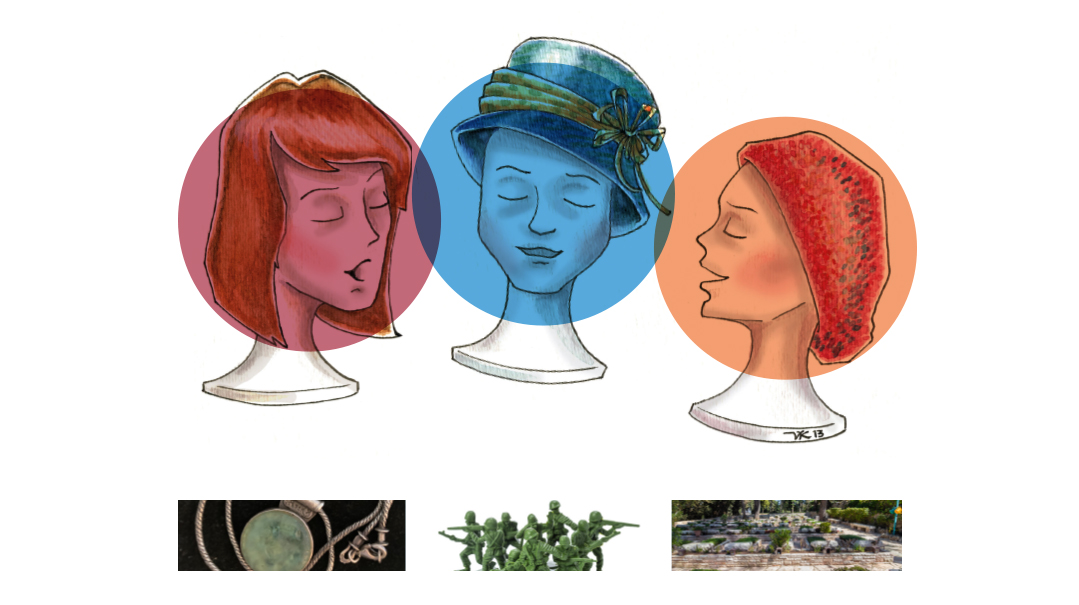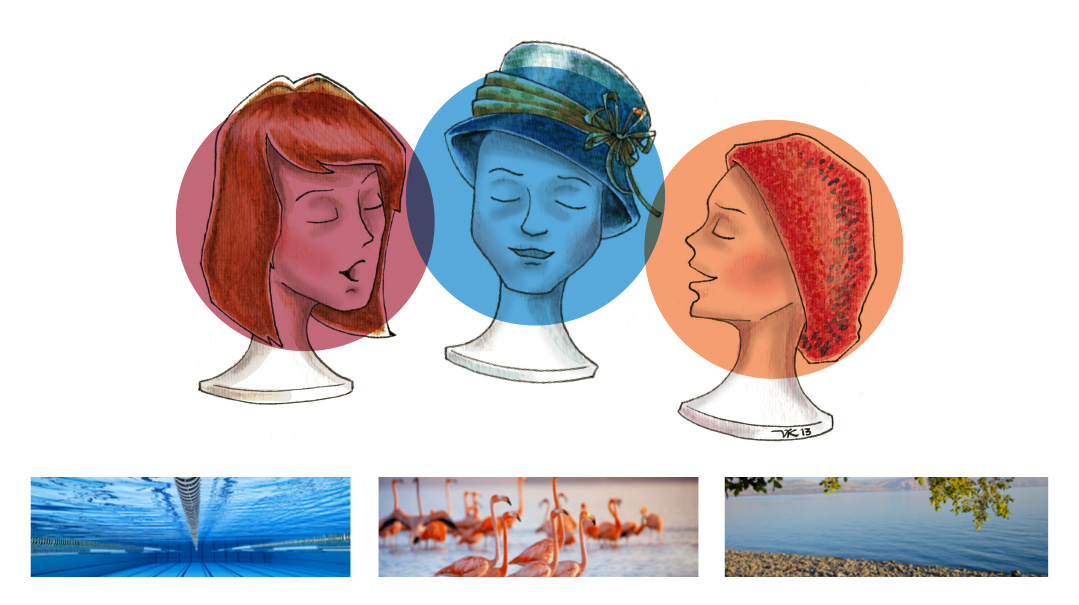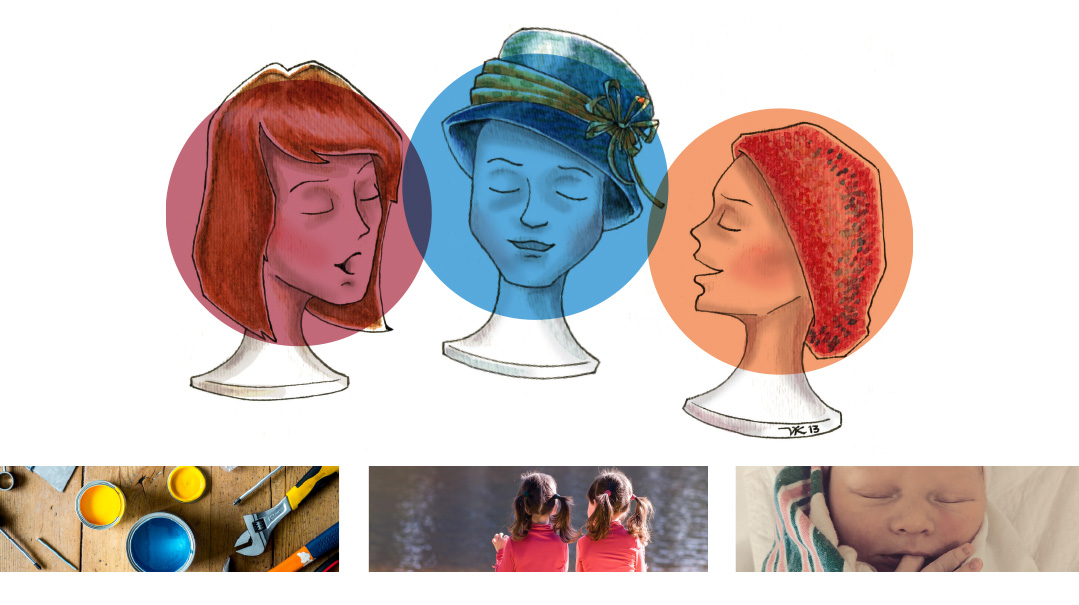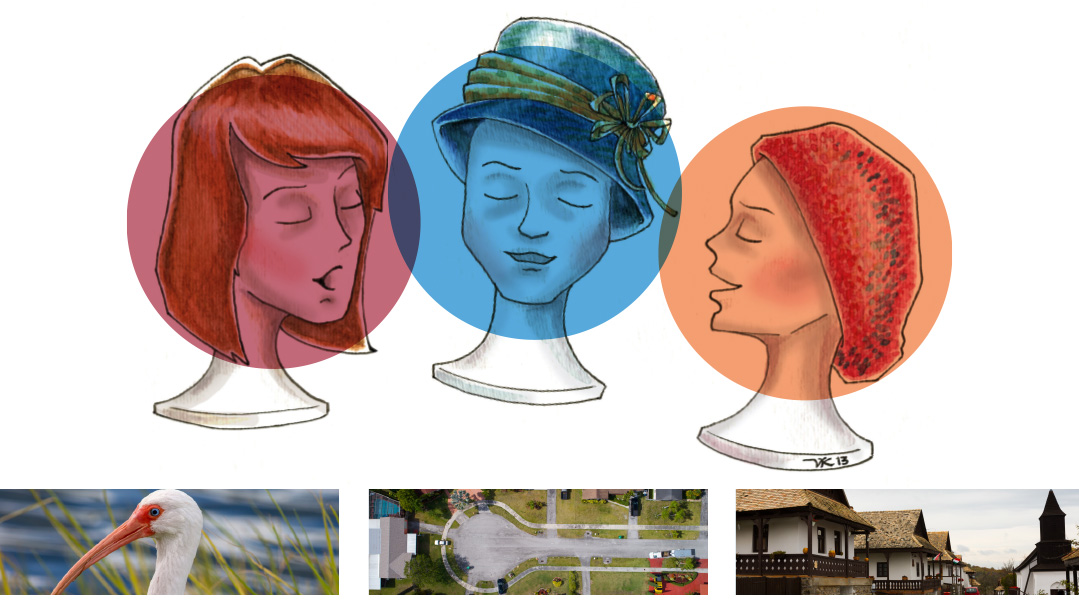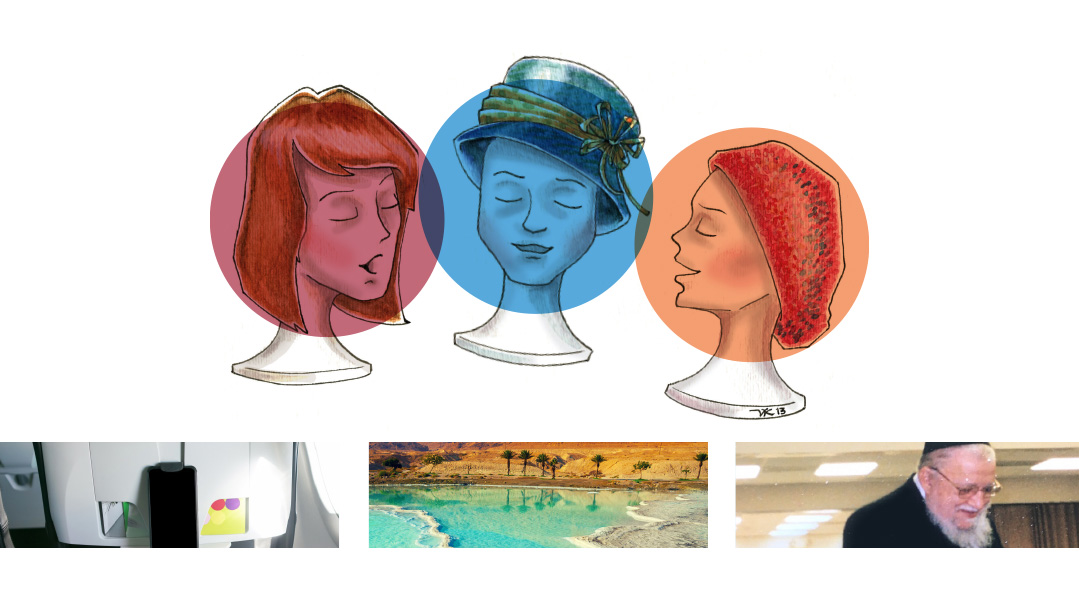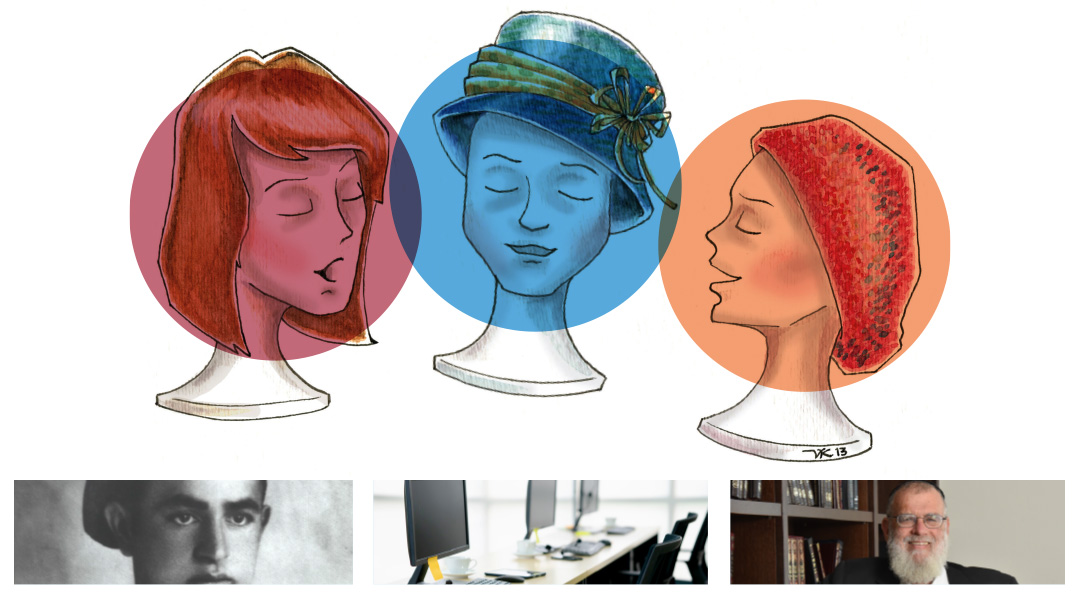What’s in a Name?
| October 14, 2020Join the Sisters (who share the name Stark, which means strong!) as we look at some of the names we’ve encountered
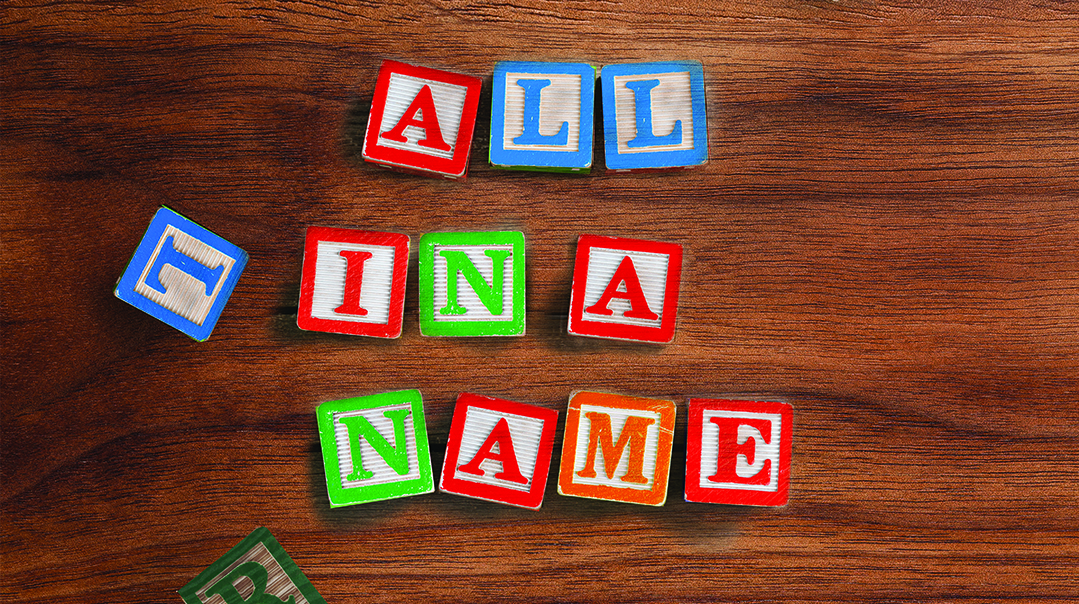
"What’s in a name?” William Shakespeare famously asks. He answers his own question: “A rose by any other name would smell as sweet.”
Well, Bill, that may or may not be true in the botanical world, but for human beings, it’s just plain wrong.
Names matter.
Look at Tanach, where names from A to Z (Avraham to Zechariah, for example) are significant. In Sefer Shmuel, Avigayil states it clearly. Describing her husband, Naval, she says, k’shmo ken hu, he is like his name. In our everyday lives, we know that names can connect us to the past, can impact on how we see ourselves, and can affect how others see us.
Join the Sisters (who share the name Stark, which means strong!) as we look at some of the names we’ve encountered: the name of a child, the name of a “nameless” stranger, and the name of a grandfather whose name lives on in us.
Emmy Leah recalls... Naming Racheli
We’re told that parents enjoy some level of ruach hakodesh when they name a child.
But when naming a child covers two countries, a makom kadosh, nine flights of stairs, a bomb shelter, a tzaddik’s brachah, a trip to the Kosel, and a view of Har Hazeisim, well, that’s ruach hakodesh intensified….
Rochester, NY, mid-1990
We were parents of a son and three daughters and baruch Hashem expecting another child. For the first time, we had no family names to give. Until it hit me: None of our girls bore the name of any of our Imahos. If it was a girl, how about naming Girl Number Four for one of the Four Foremothers?
Great wordplay, said my husband, but… which foremother? Obviously, Leah wouldn’t work. So if we needed to take the well-worn pink stretchies and hand-me-down pink baby blankets out of storage, would we be cuddling Sarah, Rivkah, or Rachel?
Beit Lechem, 11 Cheshvan, 1990
Almost miraculously, our family came for a year in Israel. (For details, read previous Schmoozes.) One day in Cheshvan, I found myself at Kever Rochel, on Rochel Imeinu’s yahrtzeit.
Though the yahrtzeit wasn’t as well-known as today, when tens of thousands crowd the small area, Kever Rochel was still packed. So packed, that even though I’m Brooklyn born-and-bred and expert at navigating crowds, I decided that since I was in my sixth month, I’d stand back and not push my way to the tziyun itself.
Suddenly, an ancient-looking savta grabbed my hand. She shouted something to the crowd in fast, and to me, incomprehensible, Hebrew, and they cleared a path for me. Standing next to the blue velvet paroches, I felt like I’d passed through a mini-Kri’as Yam Suf.
At that moment, through my tefillos and my tears, I knew my child would be a daughter — a daughter who would be named for Rochel Imeinu.
Jerusalem, January 6, 1991
Mazel tov! It’s a girl! Our first sabra, born the first week of the first (secular) month, January 1991.
And yet another first: It was a week before the First Gulf War would break out. The war in which Saddam Hussein, yemach shemo, threatened to attack Israel with gas. Threatened to G-d forbid attack my children and my newborn infant, with gas.
Jerusalem, January 10, 1991
Baby-naming day. We walked down nine flights of stairs from our apartment to the minyan in our building miklat. (Rickety elevators scare me.) Somewhere around the fourth floor, my husband looked at me and said — how about a middle name? Maybe Ahuva? Rachel Ahuva, Beloved Rachel?
So a week before we’d be attacked with missiles, we named my daughter in a bomb shelter. Rachel Ahuva, named for the Foremother who cried over her children’s pain and exile. Named for beloved Rochel, who was told to dry her tears, for one day her children would return….
Later that day
Knowing war was coming, the school my daughter Malka attended moved up her mesibat siddur. Instead of sensibly going home to rest, I joined the festivities, including meeting Israel’s chief rabbi at Heichal Shlomo. Rav Mordechai Eliyahu ztz”l, the great tzaddik known for the power of his brachos, gave Malka her first siddur — and gave Rachel Ahuva, who’d received her name an hour earlier, her first brachah.
And then — the ruach hakodesh moment, on the way to the Kosel, the final stop of the day. Right before the entrance, you see Har Hazeisim clearly. My mother-in-law a”h was with us. She stopped and told me how happy she was that we’d named the baby… for her great-grandmothers, both buried on Har Hazeisim. For two women whose names we hadn’t even known that morning — her father’s two grandmothers: Rachel and Rachel Liba… Rachel Ahuva!
The next three months, and beyond…
A week after she was named, Rachel Ahuva slept soundly in her gas-impermeable crib. Three months and 39 missiles later, the war was over.
During those months, we decided to make our temporary stay in Israel permanent. B’ezras Hashem, we would raise our children, including Rachel Ahuva, in the land where generations of our mothers lived and were buried. In a land of holy places and holy men. In a land where emunah stares down fear, and the tears of exile will be replaced by the laughter of children.
In the land of beloved Rochel Imeinu. V’shavu banim l’gvulam….
Miriam cries over… Not Nameless
There is darkness surrounding this man.
It’s a normal Thursday evening. I’m leaving the car, arms sagging under the load of Shabbos shopping. I’m thinking normal thoughts: reviewing the day’s accomplishments, planning tomorrow’s schedule, updating my endless to-do lists.
Normal.
And then I see him. He’s tall. Broad. And dark. So much darkness: ebony hair, dark T-shirt, skin blackened by a brutal, uncaring Mediterranean sun.
He’s acting strange. He opens one of our new underground garbage cans, peers in, laughs. His body language is giving off a clear, inescapable message: not normal.
He jumps over a small wall that encircles a tiny plot of land next to our building. The neighborhood kids have been building a “clubhouse” here, and it’s a mass of broken pieces of wood, cracked tiles, and ice cream wrappers. He lies down on a small empty patch of cement. Closes his eyes.
I walk past him, trying to seem casual. I look down. Is he breathing? Dead drunk? Overdosing on heroin?
I stare at the face. And suddenly something shatters in my heart.
This nameless, homeless man has a name.
Yossi.
We were neighbors for several years. Batya was a young divorcée with one son. She was highly intelligent, creative, lots of fun. Her son, Yossi? He was pleasant, kind of shy. A regular kid. Except that he was an artist, a boy touched with genius.
We’d admire his sketches, the sheer power of his oil paintings. Yossi was ambitious. He was going to sculpt and paint, his works would be exhibited in museums. Or he’d become a millionaire, designing scenery for Hollywood films.
Later, as a teenager, his art changed: It grew dark and disturbing. What came first, the drugs or the mental illness? I don’t know, but it was all there — the odd behaviors, the social workers, the midnight hospitalizations.
The despair.
After a few years, Batya and Yossi moved away, out of my neighborhood, out of my life. And now here he was, a grown man, lying on the ground next to my home.
He isn’t dead. He isn’t unconscious.
“I have no place to go,” he says repeatedly to the paramedic who’d come at my urgent phone call. “No place to go.”
Here’s where I can step out of the picture. I’ve done my duty, called the people who deal with emergencies. Homeless, nameless, mentally ill men are not my problem. But this is not a homeless, nameless man. This is Yossi.
My husband and I can’t take him into our home, not with coronavirus a constant threat. We bring out a disposable cup and a bottle of water and hand him the falafels I’d brought home for dinner. He is hungry, I can see the way he wolfs down the falafels. But before he eats, he puts on a faded white silk kippah. He pours the bottled water into the cup and makes a careful “al netilas yadayim.”
He seems rational, pleasant, no threat at all. The darkness has abated; I can see the light of a Jewish soul, a Yiddishe neshamah.
He’s been on the streets for a year, he says, saving all his money from Israel’s National Insurance so that he can have a place to live. “I have no place to go,” he repeats, over and over, a mantra of desolation. I speak of homeless shelters, and his eyes grow hooded, veiled.
“They aren’t good places,” he says tersely. Can the police help? “They’re nice men, they’ll come and find me,” he says, finishing off the falafel.
“Don’t worry, I’ll be fine here,” he says, walking back to the small empty lot. He lays down, places a slab of splintered wood over himself, cuddling into it like a child with his blankey.
And goes to sleep.
The paramedic had called the police, assuring me that they’d come and deal with Yossi. And indeed, sometime in the night they must have arrived, because that Friday morning there’s no sign of him.
I should feel relieved, satisfied. We fed him, spoke with him, called the proper authorities. We aren’t social workers, have no resources for dealing with this. Yes, we did what we had to do.
So why am I crying so hard?
Marcia explains… Why I’ve Stuck with My American Name
I was supposed to be a boy. At least that was my childhood theory about my parents’ thoughts when they were expecting their postwar miracle baby.
In my mind, I was supposed to be Moishe, after my mother’s father. I figured they feminized and Americanized it into Marcia. Back then, giving babies American names was all the rage among postwar Europeans — a way to start fitting into the new democratic country, a country where they could rebuild their shattered lives.
So that explained my American name. I wasn’t particularly fond of it, especially when my friends would call me Marshmallow. I was tempted to switch to one or two of my three Hebrew names.
But…
Imaginary conversation between my parents: Oh well, maybe the next one will be a boy. Let’s get it over with and name her after both grandmothers: Chaya Feige and Malka.
Imaginary laugh by Hashem: Not only will their next one not be a boy — I’ll give them twin girls!
I’d sigh: Who saddles a child with three Hebrew names?! I suppose I could choose to go by one or two, but… how would I decide which grandmother to leave out?
So, by default, I stuck with the American moniker.
As I got older, many of my American-named contemporaries began making the switch. But I held back. Why? Because as I matured, I learned more about the grandfather for whom I believed I’d been named.
At age 15, Moishe (full name Yisroel Moshe Eisler Hy”d) was apprenticed to nine-year-old Malka’s father, who was known throughout Europe as Avruhum beketshe shneider (the frock coat tailor). By age 23, Moishe had worked his way up to one-third business partner.
Then, according to my mother, Rose Stark a”h, in a book she wrote for her family,
He approached his boss, telling him that he wanted to marry his oldest daughter, Malka. He took out his savings and said, “I do not want you to think that I am marrying her because she is the boss’s daughter. See, I have plenty of money of my own. I want to marry her because I love her. I will even pay the wedding expenses.” For years, I remember, he carried the canceled check in his vest pocket, proud that even though he’d married his boss’s daughter, he’d paid for the wedding.
What an ethic to emulate! Reaping the rewards of hard work. Saving money to support a family. Taking pride in independence. Making time for limud Torah. And, to top it off, being the hero in a pre-World War I engagement story that took place in the frum Eastern Europe alte heim — without even a shidduch résumé!
More stories emerged. Stories that painted a multifaceted picture of a man who kept kosher during four and a half years as a conscripted Hungarian soldier in World War I, surviving only on bread, black coffee, potatoes, apples, and cucumbers… who was the neighborhood Shabbos candy man, rewarding kids who could name the week’s parshah… who got beaten by inspectors for daring to employ a deaf-mute orphan despite Hungarian laws forbidding Jews to be bosses… who passed up a sip of water from a bottle circulating in the sweltering humanity-packed cattle car on the way to Auschwitz, saying, “gib is tzu de kinder — give it to the children.”
The “burden” of my American name morphed into a badge of honor.
When I mentioned my Marcia-supposed-to-be-Moishe theory to my sisters, they were horrified.
Mimi: “Are you crazy? Mommy was always so proud of her girls! Just like her father Moishe was proud of his six daughters. Don’t you remember what she would tell us about him? Whenever someone asked how he’d be able to afford all those dowries, he’d answer, ‘They’ll have to pay me.’ ”
Emmy Leah: “And you know why they named you after both grandmothers? Not because they thought the next one would be a boy — they never dreamed they’d have any other kids at their late ages.”
So now I realize I’ve been wrong all these years, and — can you believe it — my baby sisters are absolutely right!
Oy, they’ll never let me live this down.
(Originally featured in Family First, Issue 713)
Oops! We could not locate your form.

